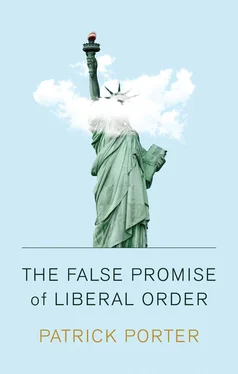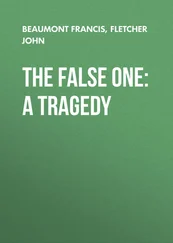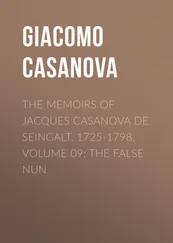Patrick Porter - The False Promise of Liberal Order
Здесь есть возможность читать онлайн «Patrick Porter - The False Promise of Liberal Order» — ознакомительный отрывок электронной книги совершенно бесплатно, а после прочтения отрывка купить полную версию. В некоторых случаях можно слушать аудио, скачать через торрент в формате fb2 и присутствует краткое содержание. Жанр: unrecognised, на английском языке. Описание произведения, (предисловие) а так же отзывы посетителей доступны на портале библиотеки ЛибКат.
- Название:The False Promise of Liberal Order
- Автор:
- Жанр:
- Год:неизвестен
- ISBN:нет данных
- Рейтинг книги:4 / 5. Голосов: 1
-
Избранное:Добавить в избранное
- Отзывы:
-
Ваша оценка:
- 80
- 1
- 2
- 3
- 4
- 5
The False Promise of Liberal Order: краткое содержание, описание и аннотация
Предлагаем к чтению аннотацию, описание, краткое содержание или предисловие (зависит от того, что написал сам автор книги «The False Promise of Liberal Order»). Если вы не нашли необходимую информацию о книге — напишите в комментариях, мы постараемся отыскать её.
The False Promise of Liberal Order
The False Promise of Liberal Order — читать онлайн ознакомительный отрывок
Ниже представлен текст книги, разбитый по страницам. Система сохранения места последней прочитанной страницы, позволяет с удобством читать онлайн бесплатно книгу «The False Promise of Liberal Order», без необходимости каждый раз заново искать на чём Вы остановились. Поставьте закладку, и сможете в любой момент перейти на страницу, на которой закончили чтение.
Интервал:
Закладка:
The Argument
The target here is the proposition of liberal order. This is not the same as liberalism, a rich tradition that is continually remade. Liberal order is a suggestion about how a dominant power organized, and can organize, the world. I argue that the concept is a self-contradiction. The world is too dangerous and conflicted to be ordered liberally, and overstriving to spread democracy abroad will destroy it at home.As the historical record shows, as well as consensual institution-building and dialogue, there were illiberal and coercive parts. These dark parts – the hypocrisies of power – were not aberrations but helped constitute the system. The order was partly driven by an imperial logic, of hierarchical dominance, partly an anarchic logic of competition for security, as well as recurring liberal impulses. 48It was mercantilist as well as ‘free’. It rested on privilege more than on rules. Appeals to the myth of a liberal Camelot flow from a deeper myth, of power politics without coercion, and empire without imperialism.
These problems are rooted primarily not in American political culture, but in the tragic nature of international life. In an inherently insecure world, to order is an illiberal process, and a violent and coercive one, that invariably forces compromises between liberal values and brutal power politics. Even the most high-minded overseas projects require collaboration with illiberal forces, whether dictators, fanatics or criminals. Even the episode most fondly recalled in transatlantic memory as an unambiguous good, the defeat of the Axis in the Second World War, was made possible through an appeasement of Stalin’s Soviet Union.
Ordering is an inherently imperial undertaking. By ‘imperial’, I mean the exercise of dominance over another state’s domestic policies, whether in the foreground or implicitly in the background. American statecraft reflects both the desire to liberate and yet also to control, a ‘Crusader State’, setting others free while determining their course, on American terms. 49This need not be formal or annexationist rule. In this case, it is a distinctively American, informal mode of empire, one that functions as
influence, exercised routinely and consistently, becomes indistinguishable from indirect rule … When actors believe that certain options are ‘off the table’ because of an asymmetric (if tacit) contract, or consistently comply with the wishes of another because they recognize steep costs from noncompliance, then the relationship between the two becomes effectively one between ruler and ruled. 50
Ordering the world requires that others be led, and, if not responsive to coaxing, more forcibly herded. The ordering power that demands compliance and rule-following from others will also reserve its prerogative not to be bound, on the basis that it is ‘special’. As Ikenberry frames it, this is what we mean by an imperial logic. Complaining about the foreign policy of President George W. Bush, Ikenberry noted that ‘it offered the world a system in which America rules the world but does not abide by rules. This is in effect, empire.’ 51So it was. That also, however, describes US hegemony since its inception.
The liberal order proposition, supposed to help develop trust and mitigate the forces of anarchy, underestimates the problem of the security dilemma, the paradox of taking steps to increase security only to heighten insecurity. Even the most well-intended, benign project to order the planet will appear hostile and threatening to rivals and potential adversaries. What looks to the ascendant power like a harmony of interests and a morally obvious set of arrangements, derived from self-evident timeless principles that serve the common good, will look to some others like the enforcement of self-interest, dressed up as moral universalism. Rivals and adversaries with a history of predation, and being preyed upon, fear that beneath the hegemon’s insistence on an order of rules, it reserves a self-anointed right to enforce its preponderance by bending or breaking rules, routing around protocols and striking at will. Through the eyes of adversaries with long memories, it is too hard to distinguish American benevolent hegemony from a threatening preponderance of power. The hegemonic power may genuinely believe its own claims – that it doesn’t practise the ugly power politics of ‘spheres of influence’, expansion or trade protectionism. This makes the problem worse, for it will practise aggrandisement without awareness, being shocked when its obviously benign actions result in resistance.
Liberal order also has a problem with war itself. Its founding conviction is that ‘autocratic and militarist states make war; democracies make peace … this is the cornerstone of Wilsonianism and, more generally, the liberal international tradition’. 52This conviction tends towards belligerence. Making a world safe for democracy easily merges into making the world democratic. It slips readily into the further conceit that as ‘our’ actions are peaceful in their essence, the source of belligerence lies externally with other forces. Problems come not from tragic interactions but from malign external forces arrayed against a virtuous American hero-state. In turn, that logic supplies a warrant for applying righteous force. A commitment to permanent world-ordering strictly on one’s own terms then entails regular military action, occasionally rising to violent crescendos. Those in favour of a return to liberal order usually demand more power projection, greater alliance commitments, more military presence, not less. Yet while such enthusiasts have much to say in praise of military arrangements – alliances, joint exercises, doctrines and capabilities – and in criticism of failures to apply military force, they are notably shy about the process of wars conducted in the name of their ideals, and what they lead to. Projecting power to achieve international order has had domestic, illiberal consequences like the increase of state power and the unbalancing of the constitution. Two decades of war have frayed American liberties, institutions and solvency.
While the proposition of singular American ‘leadership’ as a world-ordering hegemon has become a self-evident value amongst traditionalists, this derives from nostalgia for a temporary and unsustainable moment in world politics, and one that its admirers romanticize too much. The extravagant vision – of America as a world-ordering superintendent with an appetite for unrivalled ‘global leadership’ – overstates the country’s power and knowledge. Historically, this has driven the USA into avoidable waste and misfortune. At its least reflective, the dream of liberal order produces a warlike righteousness, the instinct that chaos must be due only to a lack of power projection, ruling out the prudent consideration of retrenchment or adjustment. It serves to narrow rather than enlarge our imagination and choices, to reduce foreign policy to a dualistic contest between ‘leadership’ and ‘isolation’. For them, the lessons of history are clear and unambiguous, and derive almost entirely from a single atypical case, the failures of inter-war isolationism and appeasement. By casting itself as a liberal Leviathan with an exceptional global role and historical mission, the USA inadvertently makes itself a Jacobin state, forever seeking expansion of its sphere and promoting regime change and revolution. All the while, it attributes problems to ‘not enough’ American dominance. If we need an alternative banner under which to mobilize against Trump’s seductive promise of a return to greatness, that banner does not have to be just a refined version of what came before, an order that many experience as remote institutions, borderless, inhumane capitalism and war without end.
Читать дальшеИнтервал:
Закладка:
Похожие книги на «The False Promise of Liberal Order»
Представляем Вашему вниманию похожие книги на «The False Promise of Liberal Order» списком для выбора. Мы отобрали схожую по названию и смыслу литературу в надежде предоставить читателям больше вариантов отыскать новые, интересные, ещё непрочитанные произведения.
Обсуждение, отзывы о книге «The False Promise of Liberal Order» и просто собственные мнения читателей. Оставьте ваши комментарии, напишите, что Вы думаете о произведении, его смысле или главных героях. Укажите что конкретно понравилось, а что нет, и почему Вы так считаете.












